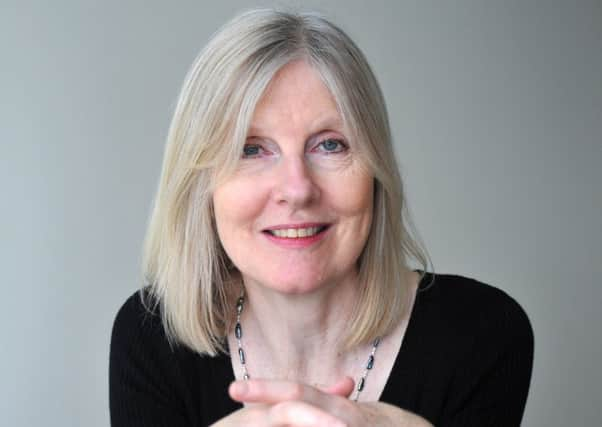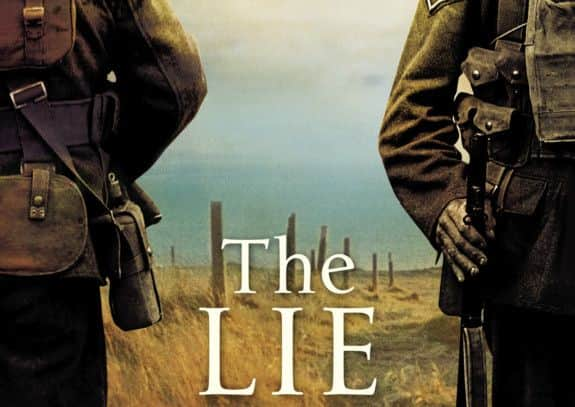Exploring the legacy of the Great War


“It is a period I find gripping because it changed our society completely,” says best-selling author Helen Dunmore of the years immediately after the First World War. “You can’t lose that many people without it having a ripple effect for generations.”
Dunmore, who was born in Beverley and now lives in Bristol, has written about this era before – most notably in the 1996 inaugural Orange Prize-winning A Spell of Winter – and returns to it with her latest novel The Lie.
Advertisement
Hide AdAdvertisement
Hide AdSet in 1920, it tells the story of Daniel, a young man who returns home to Cornwall after the First World War and attempts to move on with his life but finds that he is haunted by memories of his experiences on the battlefields of France – and feels alienated from the people and places of his childhood. It is an affecting exploration of the difficulties facing returning soldiers as they tried to settle back into a world where, because of what they had been through, they felt they no longer belonged.


“It was the characters that came to me first,” says Dunmore. “And in particular Daniel – he came to me with an overwhelming force. I could hear his voice and begin to understand what had happened to him and made him who he was.” We discover that Daniel grew up in poverty in rural Cornwall with his widowed mother and had to leave school at the age of 11.
He gets to know well-to-do siblings Frederick and Felicia when his mother works as a cleaner at their home and Daniel is able to indulge his love of reading by ‘borrowing’ books from their extensive library. Despite the differences in their class and background, the three children become close friends. After the war, however, everything has changed. Frederick is dead, Felicia is a widowed young mother struggling to deal with a situation that she was not raised to expect and Daniel is battling to build a future for himself. He would like to live a peaceful life running a smallholding, but the way in which he acquires one involves telling what seems like a harmless white lie which could have terrible unforeseen consequences. “After the war there was a serious unemployment and housing problem,” says Dunmore. “Daniel is not untypical of his generation. I am interested in the enormous drive that human beings have to try and survive after a catastrophe.”
The novel also contains flashbacks to Daniel’s time in the trenches and Dunmore creates an authentic portrait of what everyday life was like for the soldiers – the day to day business of coping with fear and harsh physical conditions. “Looking at letters, diaries and other accounts, what is very touching is the cheeriness that people are attempting in their letters home,” says Dunmore. “Even when there wasn’t a ‘big push’ they would have to cope with snipers, for example, and constant sleeplessness. I was interested in the detail – the way the men looked after each other and the enormously strong bond that they had.” She begins each chapter with an excerpt from contemporary pamphlets and publications such as Notes for Infantry Officers on Trench Warfare, published in 1916, which includes – with hindsight, woefully and poignantly inadequate – advice on keeping up morale, using an empty sandbag as camouflage and how to avoid trench foot. As a powerful and striking contrast to the ‘official line’ represented by these publications, Dunmore presents the reader with unflinching descriptions of the reality of the situation – the smell, noise, chaos and horror of combat.
Advertisement
Hide AdAdvertisement
Hide Ad“For those who survived they had that cargo of experience for the rest of their lives,” says Dunmore. “They may have had physical and psychological scars but very often they didn’t speak about it. Through the novel I am bringing to light what might be said; breaking that silence.”
The Lie, £14.99, is published by Hutchinson.
Award-winning writing career
Helen Dunmore was born in Beverley in 1952 and studied English at the University of York. She began her writing career as a poet, publishing her first collection The Apple Fall in the 1970s. She went on to write short stories and published her first novel for adults, Zennor in Darkness (also set during the First World War), in 1993. Probably her most well-known novel is The Siege, published in 2001 and set in Leningrad during the occupation of the city by German forces in the Second World War. It was shortlisted for both the Whitbread Novel Award and the Orange Prize for Fiction.